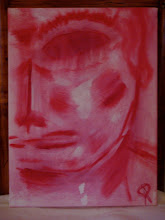
Years ago several of us were sitting around a small fire in the backyard on a fall evening, listing the five books each of us would take if we were forced to live on a deserted island for the rest of our lives. I only remember two responses. The first was from Jim Bledsoe, an older, gay man visiting from New York, who named The Complete Works of Jane Austen. I think we were startled by his choice, not knowing that Jim was a Jane fan, or maybe because we thought he was stretching the rules a bit (could you pick the Complete Works of William Shakespeare, for example, or any author? hmmm ...).
The other choice which generated some surprise among the group was my choice of the dictionary. But I loved then, and love now, to look up words, and can be endlessly entertained by thumbing through the dictionary. I find that I regularly consult the dictionary in my work (mostly online now, Merriam-Webster), looking up words that I think I know to get their precise meaning before I commit them to writing, whether in a poem or essay. I know the general meaning of a lot of words, but sometimes a subtle shift in meaning can send readers off in a totally different direction from the one I intended. So I look the word up, and learn not just its meaning but its roots in the process.
It was in this spirit that I went and looked up "Luddite" after I used it in yesterday's post. Anecdotally, I knew it to mean someone who resists technology. That is true, but here is the rest of what I found:
Main Entry: Ludd·ite
Pronunciation: \ˈlə-ˌdīt\
Function: noun
Etymology: perhaps from Ned Ludd, 18th century Leicestershire workman who destroyed a knitting frame
Date: 1811
: one of a group of early 19th century English workmen destroying laborsaving machinery as a protest; broadly : one who is opposed to especially technological change
In just a few short lines I am given not only the meaning of the word but the name of a real person, where and when he lived, and what he did that, apparently, gave rise to the word we use today. I love it! The dictionary remains on my Top 5 list today. The others:
The Complete Works of William Shakespeare (only kidding)
The Four Adventures of Richard Hannay, by John Buchan
Collected Poems, Stanley Kunitz
The Poisonwood Bible, Barbara Kingsolver
Paradise Lost, John Milton
On reflection, this is an impossible task. If I am being whisked out the door and have to grab five volumes, these would be good choices, but so would many others, especially bound collections like The Complete Sherlock Holmes by Arthur Conan Doyle and, yes, The Complete Works of William Shakespeare. Novels are an especially tough choice, as there are so many good ones, and it's hard to know which ones would sustain my interest the most over many readings. But I think I could live with these comfortably for some time.
Your five??

No comments:
Post a Comment